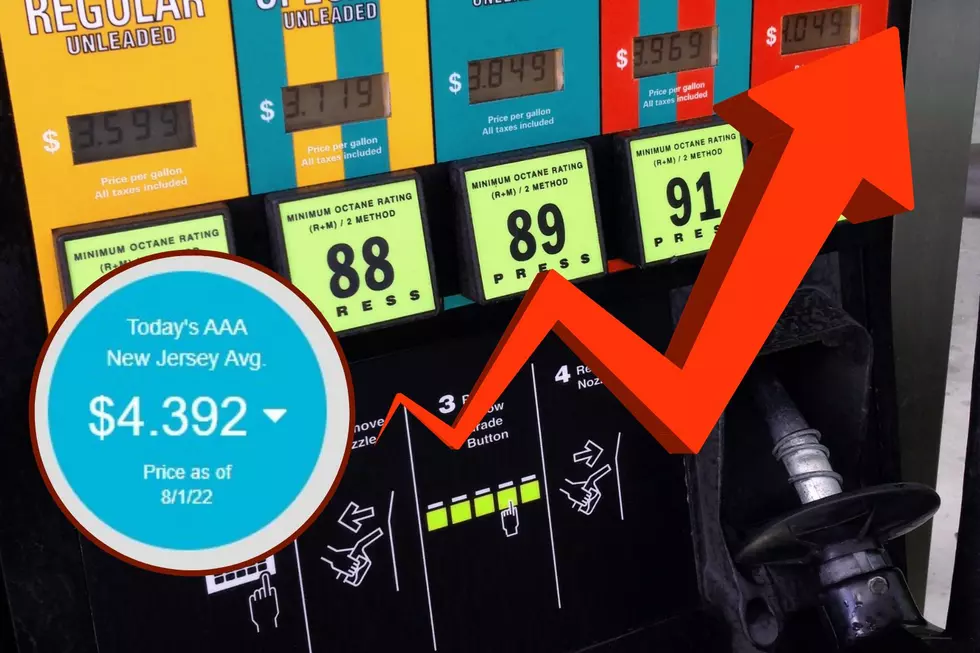
What NJ workplaces can do to address big drug abuse problem
Maybe it’s a close friend, a relative or perhaps it’s a co-worker.
You probably know someone who has a drinking problem or is frequently getting high when they’re not on the job, but they won’t talk about it and they’re not getting any help.
According to the RWJBarnabas Health Institute for Prevention and Recovery, nearly 10% of adults with full-time jobs have a substance use disorder but most won't get the treatment they need because of the stigma associated with alcohol and drug use.
Employers across the Garden State are being urged to become proactive and change the situation.
People are scared to get help
According to IFPR Vice President Michael Litterer, the vast majority of people don’t seek treatment or even discuss their situation because “there’s that stigma, there’s a fear of consequence: am I going to lose my job, am I going to get fired? There’s many, many fears that prohibit someone from trying to get help.”
He said someone must have the desire to address their substance use disorder but stigma can prevent someone from seeking treatment.
He also noted things have gone from bad to worse over the past two years because more people have developed a substance use disorder to deal with the stress, trauma and anxiety caused by COVID.
It should be easier to get help
IFPR Senior Vice President Connie Greene said most companies don’t make it easy for their workers to get help.
“When someone has a need for treatment of or intervention for substance use disorder, it’s a black hole, you don’t know where to go,” she said.
She said the current situation must change and companies must work on making sure their employees feel safe about seeking help for a substance use disorder.
“If the workforce is first to organize a task force, and start to talk about stigma, over time it becomes comfortable," she said.
“The workplace is not safe and doesn’t have support until we spend a lot of time and a lot of energy getting the word out.”
It's going to take some time
She said de-stigmatizing the workplace environment and allowing employees to feel comfortable about asking for help with a substance use disorder won’t happen overnight.
“But it’s a joyful process when we can start talking about something that has been the hidden disease," she said.
Greene added we want to be able to put “substance use disorder in the same category of every other disease that people are comfortable asking for help.”
Litterer said to begin to make employees feel comfortable about talking about substance use disorder “sometimes the very first step is establishing your business as a stigma-free workplace.”
Know what's really available
He said it’s also important for employers to make sure they really understand what kind of help is being offered to workers.
“We may have a behavioral health phone number of the back of our insurance card, but what does that really mean, what treatment is available, what are the resources, what is that going to cost my employee.”
Greene said that people with a drug or alcohol problem should not be referred to as an addict, but rather as someone with a substance abuse issue.
“The word addict is a very judgmental word, and an individual with a substance use disorder is a very caring word, language matters,” she said.
Litterer said employers want their workers to be as productive as possible but when someone is struggling with a chronic issue or disease their productivity will decrease, that is another reason why employers should provide as much support as possible for substance use disorder.
David Matthau is a reporter for New Jersey 101.5. You can reach him at david.matthau@townsquaremedia.com
Click here to contact an editor about feedback or a correction for this story.
What would happen to NJ if we were attacked by nuclear weapons?
LOOK: These Are the 50 biggest retailers in America
LOOK: What are the odds that these 50 totally random events will happen to you?
More From Beach Radio










